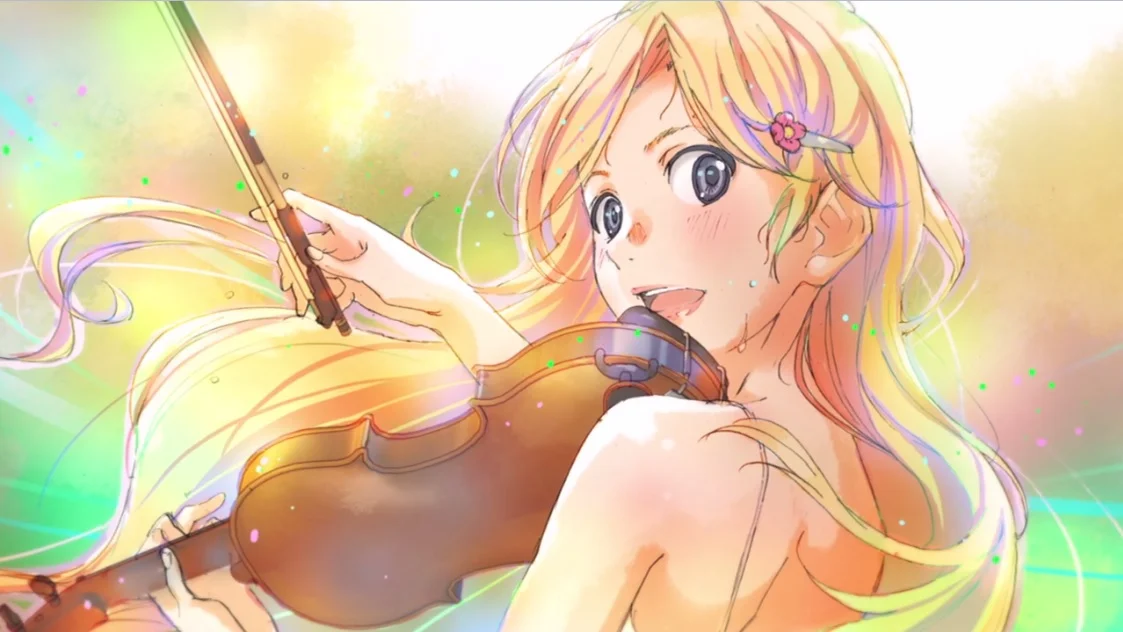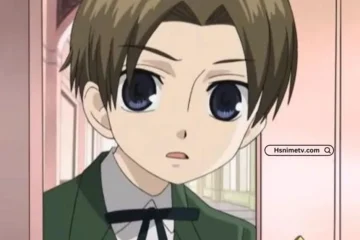Introduction
Music has a remarkable ability to evoke emotions, tell stories, and connect people across all walks of life. One of the most profound expressions of this is in the world of anime, particularly in the beautiful, heart-wrenching series Your Lie in April. As an emotional roller coaster, the series intertwines the themes of love, loss, and the healing power of music. This article delves into how Your Lie in April uses music as a narrative tool, the psychological journey of its characters, and its lasting impact on viewers.
1. Overview of Your Lie in April

Your Lie in April (Shigatsu wa Kimi no Uso) is a Japanese anime series based on the manga written by Naoshi Arakawa. The story follows Kousei Arima, a piano prodigy whose life is turned upside down after the death of his mother. Due to the trauma of her loss, Kousei can no longer hear the music he plays. For two years, he avoids the piano, living a life devoid of color and sound. Everything changes when he meets Kaori Miyazono, a spirited violinist who introduces him to a new way of experiencing music, life, and love.
The 22-episode anime, released in 2014, became an instant hit not only for its stunning animation and musical scores but also for its deep, emotional storytelling. The series explores the characters’ inner worlds while using music as a powerful narrative device.
2. The Significance of Music in Storytelling

Music serves as the backbone of Your Lie in April, not just as a theme but as a driving force of the story. Classical compositions, particularly from composers like Chopin, Beethoven, and Rachmaninoff, are integral to the plot. Every performance by the characters represents a turning point in the narrative or a revelation about their emotional state.
For Kousei, the piano becomes both his prison and his path to freedom. His complex relationship with the instrument symbolizes his inner turmoil and growth. Each time he sits at the piano, the audience is drawn into his struggle to reconcile with his past and his feelings for Kaori.
On the other hand, Kaori’s violin represents freedom, passion, and the unpredictability of life. Her wild, unrestrained playing contrasts sharply with Kousei’s rigid, perfectionist approach, showcasing the different ways people express their emotions through music.
3. Kousei Arima’s Emotional Journey

At the heart of Your Lie in April is Kousei Arima’s emotional evolution. The series begins with him trapped in a world of silence—metaphorically and literally. The trauma of his abusive mother and her death caused him to lose the ability to hear the music he plays, reflecting his emotional numbness. As a child, his mother pushed him relentlessly, turning the piano into a source of anxiety rather than joy.
Kousei’s journey is one of rediscovery. His encounters with Kaori and the other characters, such as his childhood friends Tsubaki and Watari, slowly help him break down the emotional walls he built around himself. Music becomes the catalyst for Kousei to confront his past, accept his grief, and open his heart again.
His return to the piano signifies more than just regaining his musical ability—it represents his willingness to feel again. As he moves from playing rigid, technically perfect pieces to more emotional, passionate performances, the audience witnesses his internal growth.
4. Kaori Miyazono’s Role as a Catalyst

Kaori Miyazono is the heart and soul of Your Lie in April. From the moment she enters Kousei’s life, she challenges him to see the world differently. Her carefree, passionate approach to music and life acts as the perfect counterbalance to Kousei’s guarded, controlled existence.
Kaori’s love for music and her desire to leave an emotional imprint on her audience is infectious. She teaches Kousei that music isn’t just about technical precision, but about expressing one’s heart. Her philosophy—playing for the people you love rather than for perfection—becomes a central theme of the series.
Though she radiates joy and enthusiasm, Kaori is dealing with her own set of struggles. The tragic twist in the story is that she is battling a life-threatening illness, which she keeps hidden from Kousei and their friends. Her character is the embodiment of living life to the fullest, despite the shadow of death looming over her. In this way, Kaori acts as both a mentor and a mirror for Kousei’s growth.
5. The Themes of Love and Loss

Your Lie in April is a story that does not shy away from the painful realities of life. Love and loss are central themes, and they are expressed poignantly through the characters’ relationships and musical performances.
Kousei’s love for his mother, though complicated, is a key part of his identity. Her death leaves a void in his life, and his inability to move on is symbolized by his detachment from music. His budding feelings for Kaori bring color back into his life, but they also come with the risk of experiencing loss once again.
Kaori’s illness and eventual death are heartbreaking for both Kousei and the audience. Her tragic fate underscores the theme that life is fragile and fleeting, but it is the moments of joy and connection that make it meaningful. The series handles grief in a way that is deeply personal and relatable, reminding viewers that even in the face of inevitable loss, life can still be beautiful.
6. The Impact of Your Lie in April on Audiences

Your Lie in April has left a lasting impact on its viewers, many of whom have praised it for its emotional depth and meaningful exploration of complex themes. The series has become a source of comfort for those who have experienced loss or who find solace in the healing power of music.
The anime’s use of classical music is another reason it resonates with such a wide audience. For many, Your Lie in April serves as an introduction to the world of classical music, inspiring a deeper appreciation for the art form. The performances within the show, combined with the emotional weight of the narrative, create a powerful experience that lingers with viewers long after the final episode.
7. The Art and Animation

Another standout aspect of Your Lie in April is its breathtaking art and animation. A-1 Pictures, the studio behind the anime, did a phenomenal job of translating the emotional intensity of the story into visually stunning sequences. The colors, lighting, and expressive character designs all contribute to the show’s ability to convey deep emotions.
Particularly during musical performances, the animation goes above and beyond to capture the physicality of playing instruments. Every hand movement, every note struck on the piano or violin, is meticulously animated, bringing the performances to life. These sequences are not just technical marvels—they are visually poetic, representing the characters’ inner emotions.
8. The Legacy of Your Lie in April

Though Your Lie in April concluded its run in 2015, its influence continues to be felt in the anime community and beyond. It stands as a testament to the power of storytelling, where music becomes a universal language that speaks to the hearts of viewers. The anime has sparked conversations about mental health, grief, and the importance of pursuing one’s passions, regardless of the obstacles.
The emotional depth of the series ensures that it remains relevant and beloved by fans worldwide. Its exploration of the healing power of music, combined with its heart-wrenching story of love and loss, makes Your Lie in April a timeless piece of art.
Conclusion
Your Lie in April is more than just an anime about music; it is a deeply emotional journey that explores the complexities of love, loss, and healing. Through the lens of classical music, the series captures the highs and lows of life, offering viewers both moments of profound sadness and uplifting hope. The story of Kousei and Kaori reminds us that while life is unpredictable and sometimes painful, it is the connections we make and the passions we pursue that give it meaning.
In the end, Your Lie in April is a love letter to the human spirit—a testament to the resilience we all carry within us, waiting for the right melody to bring it to life.
Read More: Shiro Takaoji: The Charming Host of Ouran High School Host Club




